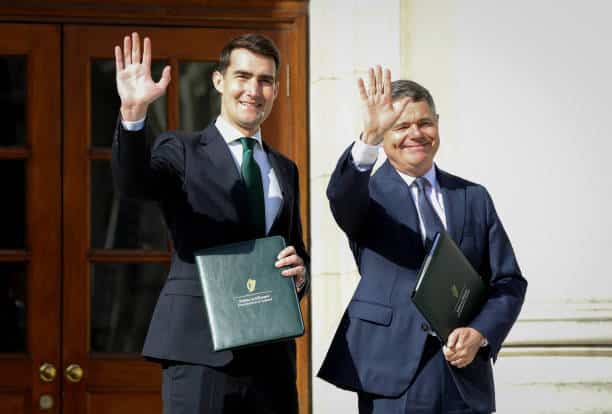World
ITIC Urges €90 Million Boost in October Budget for Tourism Growth

The Irish Tourism Industry Confederation (ITIC) has called on the government to allocate an additional €90 million in the upcoming Budget 2026, set to be announced in October. This request aims to enhance Ireland’s tourism competitiveness and address current challenges posed by geopolitical and macroeconomic uncertainties.
In a recently released pre-budget submission, ITIC highlighted the need for improved connectivity, competitiveness, and investment within the domestic and inbound tourism sectors. The organization stressed that the tourism industry is experiencing unprecedented difficulties, which necessitate substantial government intervention.
ITIC’s submission emphasized the importance of lifting the passenger cap at Dublin Airport permanently. Additionally, it called for increased support for both Cork and Shannon airports that aligns with European Union state aid levels. By enhancing connectivity, ITIC believes that Ireland can better position itself as a desirable travel destination.
On the topic of competitiveness, ITIC strongly advocates for the extension of the promised reduction of VAT to 9% for hospitality and service businesses to include attractions, adventure holiday operators, and caravan parks. The organization also emphasized the need for improved financial support to address rising business costs, including energy, insurance, excise, and labor.
Investment in the tourism sector is another critical area of concern. ITIC reported that while tourism contributes nearly €3 billion annually to the Irish economy, state investment in the sector is only €251 million. This disparity, according to ITIC, is “wholly inadequate to meet the challenges ahead.”
The organization is urging the government to increase its investment in tourism to better distribute the benefits of the industry regionally, promote sustainability measures, support food tourism initiatives, and diversify markets. ITIC’s call for an additional €90 million reflects the recent transfer of tourism oversight to the economic portfolio within the Department of Enterprise, Tourism and Employment.
Eoghan O’Mara Walsh, ITIC’s Chief Executive, stated, “Now is the time for government to control the controllables and focus on domestic home-grown sectors. Tourism is the largest indigenous industry and biggest regional employer and needs to be supported in October’s budget.”
In its submission, ITIC also pointed out that the government has accrued a surplus of nearly €2 billion in the National Training Fund (NTF), which is funded by annual employer contributions. This fund has the potential to significantly enhance industry-led skills development and encourage greater investment and engagement with the education sector. ITIC advocates for a modest release of these funds, similar to what was announced in last year’s budget, to be earmarked for labor-intensive sectors like tourism and hospitality.
As Ireland faces a challenging landscape in the tourism sector, ITIC’s call for additional funding and support is crucial for ensuring the industry’s resilience and long-term growth. The outcomes of the upcoming budget will be closely watched by stakeholders who rely on tourism for economic stability and employment opportunities.
-

 Top Stories3 months ago
Top Stories3 months agoTributes Surge for 9-Year-Old Leon Briody After Cancer Battle
-

 Entertainment4 months ago
Entertainment4 months agoAimee Osbourne Joins Family for Emotional Tribute to Ozzy
-

 Politics4 months ago
Politics4 months agoDanny Healy-Rae Considers Complaint After Altercation with Garda
-

 Top Stories4 months ago
Top Stories4 months agoIreland Enjoys Summer Heat as Hurricane Erin Approaches Atlantic
-

 World5 months ago
World5 months agoHawaii Commemorates 80 Years Since Hiroshima Bombing with Ceremony
-

 Top Stories3 months ago
Top Stories3 months agoNewcastle West Woman Patricia Foley Found Safe After Urgent Search
-

 Top Stories5 months ago
Top Stories5 months agoFianna Fáil TDs Urgently Consider Maire Geoghegan-Quinn for Presidency
-

 World5 months ago
World5 months agoCouple Convicted of Murdering Two-Year-Old Grandson in Wales
-

 World5 months ago
World5 months agoGaza Aid Distribution Tragedy: 20 Killed Amid Ongoing Violence
-

 World5 months ago
World5 months agoAristocrat Constance Marten and Partner Convicted of Infant Murder
-

 Top Stories4 months ago
Top Stories4 months agoClimbing Errigal: A Must-Do Summer Adventure in Donegal
-

 Top Stories4 months ago
Top Stories4 months agoHike Donegal’s Errigal Mountain NOW for Unforgettable Summer Views









